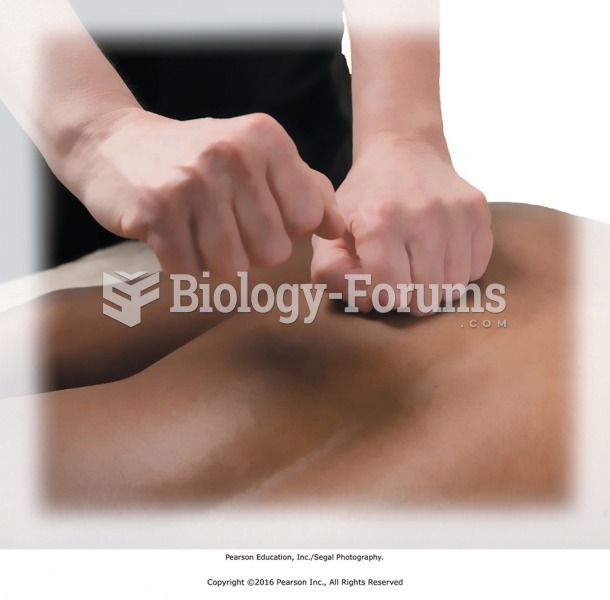|
|
|
In the United States, there is a birth every 8 seconds, according to the U.S. Census Bureau's Population Clock.
Although not all of the following muscle groups are commonly used, intramuscular injections may be given into the abdominals, biceps, calves, deltoids, gluteals, laterals, pectorals, quadriceps, trapezoids, and triceps.
The FDA recognizes 118 routes of administration.
Giardia is one of the most common intestinal parasites worldwide, and infects up to 20% of the world population, mostly in poorer countries with inadequate sanitation. Infections are most common in children, though chronic Giardia is more common in adults.
Astigmatism is the most common vision problem. It may accompany nearsightedness or farsightedness. It is usually caused by an irregularly shaped cornea, but sometimes it is the result of an irregularly shaped lens. Either type can be corrected by eyeglasses, contact lenses, or refractive surgery.
 Gate Control Theory, Gate control, Open gate, Closed gate, Pain, Nerve transmission of pain, Pain ma
Gate Control Theory, Gate control, Open gate, Closed gate, Pain, Nerve transmission of pain, Pain ma
 A Bear Automotive starting and charging tester. This tester automatically loads the battery for 15 ...
A Bear Automotive starting and charging tester. This tester automatically loads the battery for 15 ...





